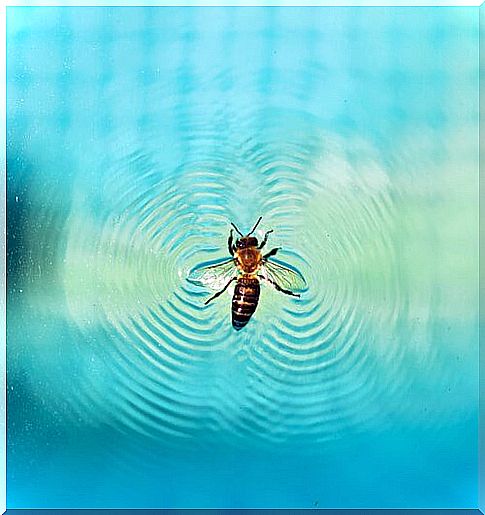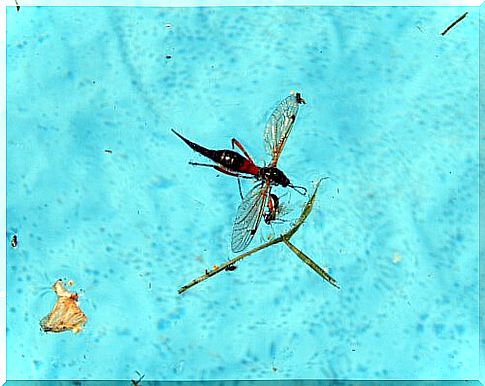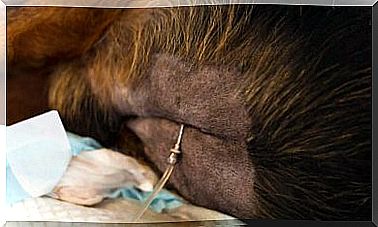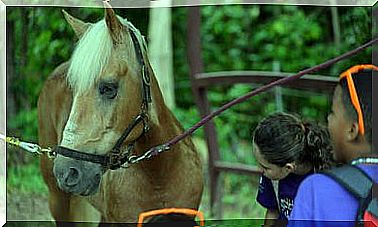How To Avoid Bugs In Your Pool

With the arrival of summer, it is very likely that some visitors will appear in your pool, such as wasps and bees. To avoid insects like these, you have to have a range of products and an effective treatment plan on hand.
Summer has arrived and with it the desire to enjoy the pool at home. However, the season is also conducive to the appearance of all kinds of insects that can make the experience a little unpleasant.
A wide variety of beetles, bees, wasps and other animals will fall into the water and this can become a real headache. How to prevent insects in your pool?
Next, we’ll look at some recommendations for making the summer pleasant and pest free.
Why do insects like swimming pools?
During the summer, the pool water has a constant warm temperature. Insects, being cold-blooded, are naturally attracted to it.
Therefore, it is very common to find a wide variety of invertebrates bathing or dead in the pool.
The insects that are most often found in the pool are bed bugs, wasps and bees, among many others.
However, some of them quickly die within minutes of coming into contact with water. This is the case, for example, with wasps and bees.
On the other hand, others can spend hours underwater without breathing. These ‘aquatic insects’ will remain alive and will remain in the pool for a long time.

Maintenance: a key aspect
Having a pool at home is an excellent way to relieve the heat and enjoy summer days. However, the installation of certain equipment and accessories is necessary for proper operation.
It is also essential to carry out rigorous maintenance work. In the case of insects, this maintenance is essential to fight them.
If there is an invasion of insects in your pool, there are some products that allow them to be controlled by regulating the pH of the water.
The type of product will depend on the insects to be eliminated. After application, it is recommended to carry out a treatment with chlorinated products, also available on the market.
Finally, the filtration system must be used to eliminate dead insects. After these operations, it will be necessary to rinse the filters.
After this intensive treatment is done, it will be necessary to keep the pool in this optimum condition. Maintenance includes regular overhaul of chlorination equipment, pump, filters and other accessories, which must be working properly.
It is also necessary to carry out water tests permanently to check the pH, which must remain between 7.2 and 7.6. Also, the chlorine level must be adequate.

Measures to avoid insects in your pool
In addition to professional maintenance, there are some simple measures that can be applied to prevent insects in your pool.
You can, for example, add a little detergent to the water so that insects cannot settle on the surface.
Another secret is to add a little more chlorine on days of high heat or greater use. Likewise, it is highly recommended to cover the pool on days when it will not be used.
This measurement may seem complicated at first, but it’s just a matter of habit.
A very simple measure, but also very effective, is to manually collect insects with a net. Also, it is very useful to set traps for them. On the market, there are several types and models.
Plants: great anti-insect allies
Placing plants around the pool can be an excellent option for scaring away insects. It will also help to create a cheerful and welcoming atmosphere.
One of these plants, which also doesn’t require much care, is geranium.
If you want to prevent wasps from approaching, it’s best to choose red geraniums. If you also want to scare away mosquitoes, then the best thing is to combine them with lemon geranium. This species emits a slight lemony scent that repels mosquitoes.
Citronella is very effective in keeping mosquitoes, wasps and bees away. The same goes for magnolia.
In addition, jasmine is also known to keep mosquitoes away, so its use is common in southern Spain to prevent bites.









